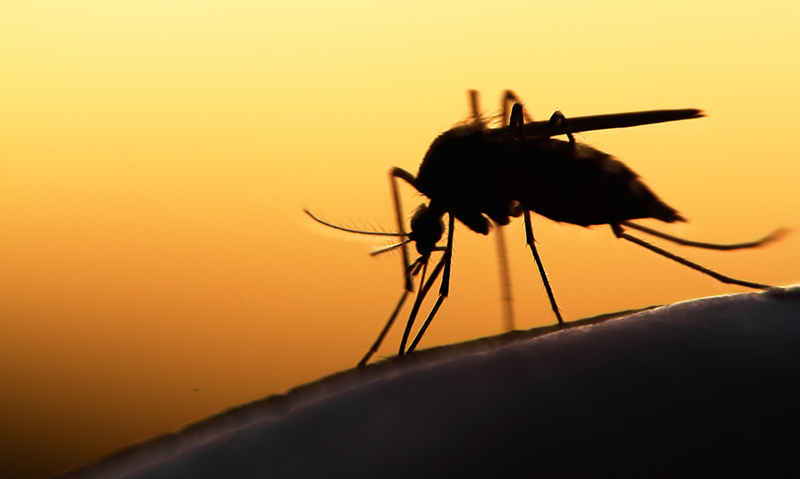Warmer temperatures and wet weather have prompted three health services to issue mosquito alerts across south-eastern Australia, writes Sam Hunt …
General practitioners in regional New South Wales, Victoria and South Australia are being encouraged to look out for the symptoms of mosquito borne illnesses in patients, following a recent ‘explosion’ in the number of virus-carrying mosquitos detected.
More than five times the ordinary number of mosquitos carrying Ross River virus and Barmah Forest virus have been detected in monitoring traps in South Australia.
A very high number of mosquitoes in the Loxton Waikerie and Mid Murray council areas carry either the Japanese encephalitis virus, the Murray Valley encephalitis virus or the Kunjin/West Nile virus.
South Australia’s Chief Public Health Officer, Professor Nicola Spurrier, said the best protection from serious mosquito-borne diseases is to not get bitten in the first place.
“We have an explosion in mosquito populations at the moment, so it is vital that South Australians protect themselves,” Professor Spurrier said.
“Remain vigilant, wear long-sleeved and light-coloured clothes and apply an insect repellent containing DEET, picaridin or oil of lemon eucalyptus if you are outside. This will help reduce your exposure.”
In Victoria, the Murray Valley encephalitis virus and the West Nile/Kunjin virus have been detected in mosquitoes trapped in several places across northern Victoria, particularly in Mildura.
A case of Japanese encephalitis virus infection was identified in a resident in the Campaspe local government area late last year, the first identified case in Victoria this mosquito season.
The Victorian Department of Health stated that most Japanese encephalitis virus infections are asymptomatic.
It said that a small proportion of patients may present with a febrile illness; however, less than one per cent may experience severe infection manifested by headache, vomiting, disorientation, seizures, coma, and more rarely, permanent neurological complications or death.
The Department said clinicians in Victoria must consider and test for the virus in patients with a compatible illness.
Clinicians should notify the Victorian Department of Health immediately of suspected cases by calling 1300 651 160 (24 hours).
General practitioners are reminded that a free vaccine is available for Japanese encephalitis virus for certain population groups, with states and territories defining their own eligibility criteria.
In New South Wales, the Murray Valley encephalitis (MVE) virus has been detected in Mathoura, Moama, and Barham along the Murray River.
The virus was also detected in a mosquito at Menindee in the state’s far west, after the town was inundated by floods last month.
Murrumbidgee Local Health District’s Director of Public Health, Alison Nikitas, has encouraged the community to take actions to avoid being bitten.
“With many people still enjoying their holidays and a range of outdoor activities in the summer weather, it remains very important that everyone takes the appropriate steps to protect against mosquito bites,” Ms Nikitas said.
“There is no vaccination or specific treatment for MVE and the best way to avoid infection is to avoid being bitten by mosquitoes, which are most active between dusk and dawn.
“Avoiding mosquito bites will also protect against other mosquito-borne infections including Japanese encephalitis, Ross River Fever and Barmah Forest virus.”
Ms Nikitas said most people who are infected with the virus that causes MVE do not have any symptoms.
“Only a small proportion of people infected with the virus will experience symptoms, which include fever, headache, nausea, vomiting, loss of appetite, diarrhoea, and muscle aches. Rarely, it causes severe neurological illness with headache, convulsions and reduced consciousness in some cases. Among those who get a severe infection, some may die or have lifelong neurological complications,” she said.
The Murrumbidgee Local Health District also encouraged people to apply repellent and wear long-sleeved clothing to prevent being bitten.
Subscribe to the free InSight+ weekly newsletter here. It is available to all readers, not just registered medical practitioners.

 more_vert
more_vert
The Northern Territory has also issued a warning. Rainfall patterns including an early monsoon and rain in Central Australia are conducive to viral amplification in bird populations and spread of MVE and possibly JE through the Top End and possibly the Centre. https://mediareleases.nt.gov.au/